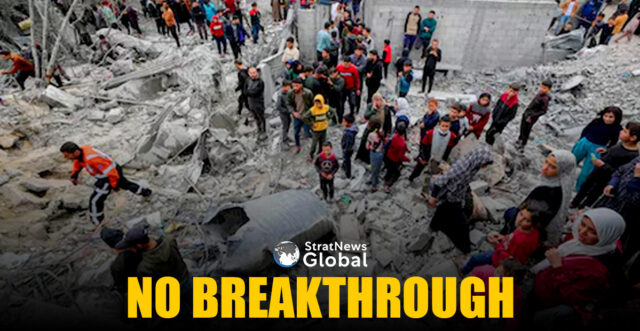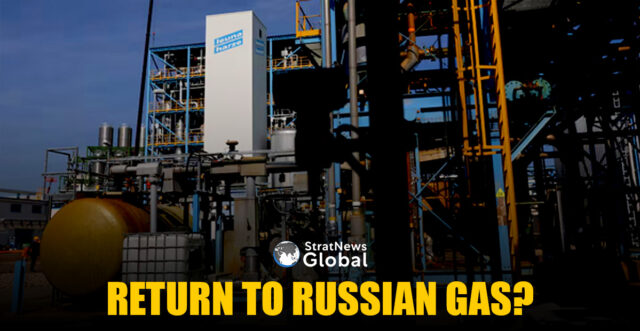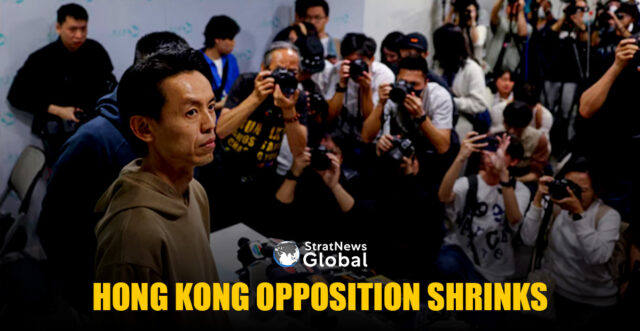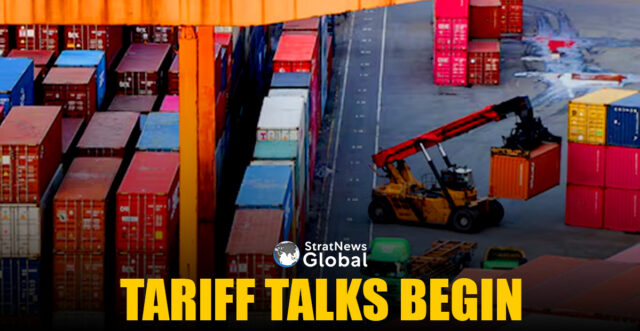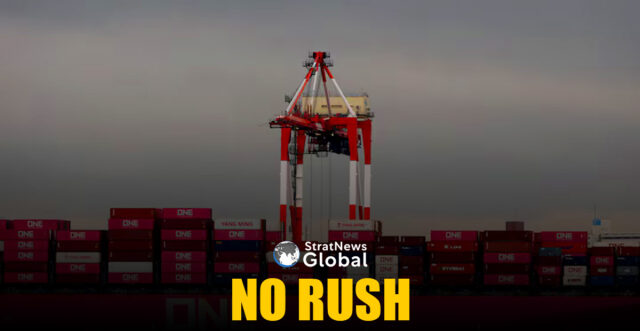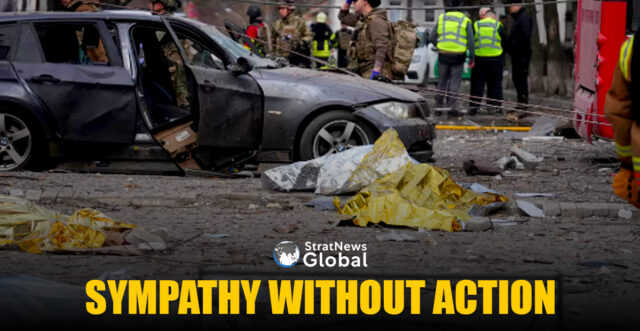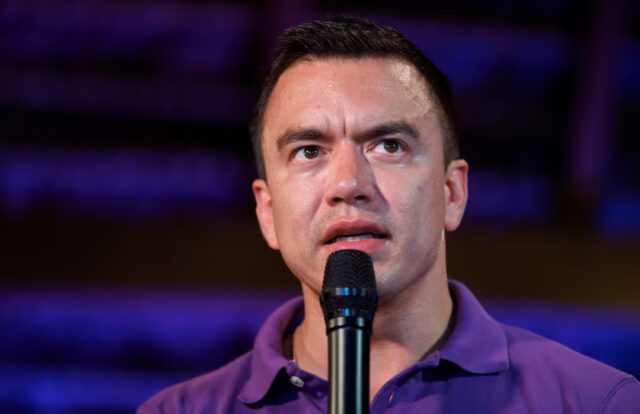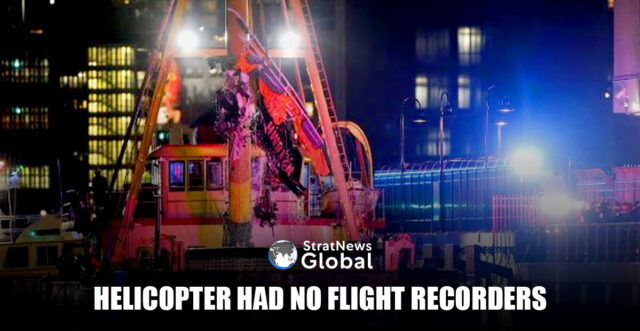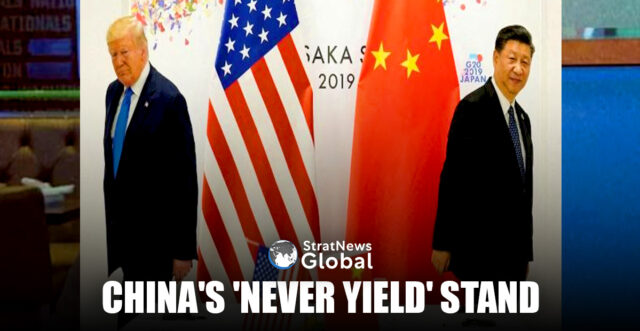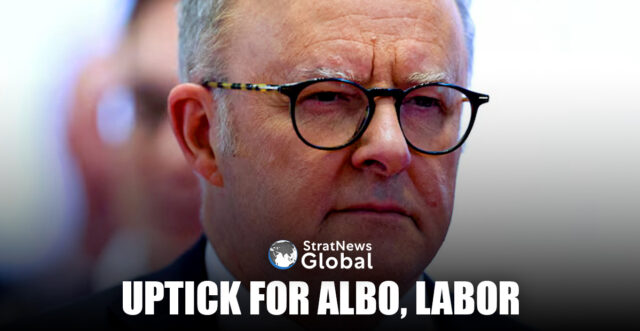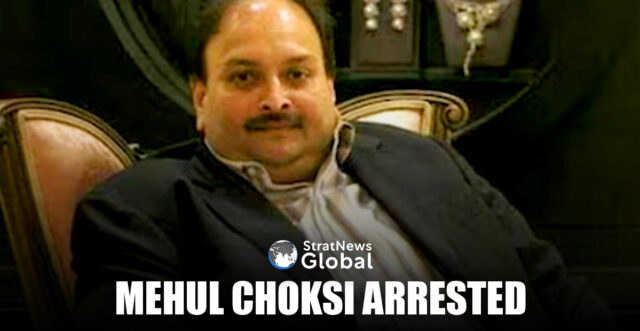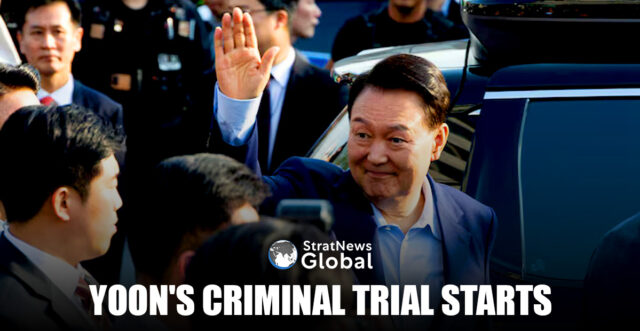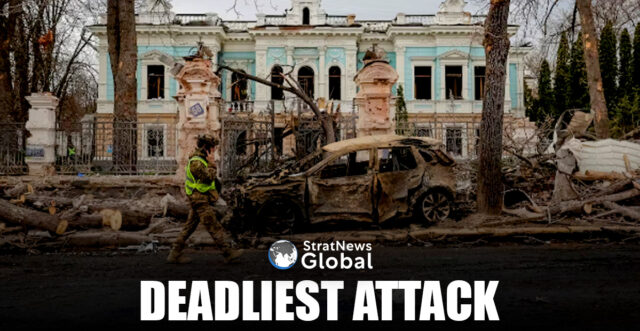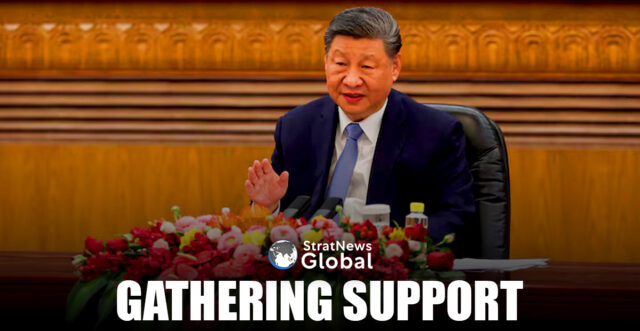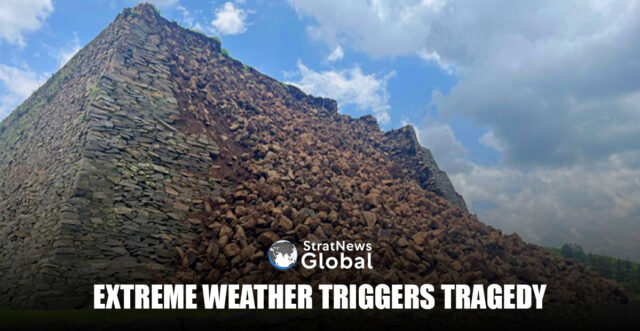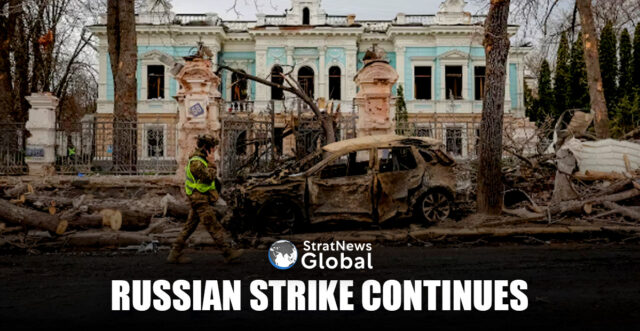China has placed civilian officials in Beijing on a “wartime footing” and launched a diplomatic campaign to rally international opposition to U.S. President Donald Trump’s tariffs, according to four sources familiar with the matter.
Communist Party propaganda officials have played a leading role in framing China’s response, one of the people said, with government spokespeople posting defiant clips on social media featuring former leader Mao Zedong saying “we will never yield.”
As part of the “wartime” posture, the details of which are being reported by Reuters for the first time, bureaucrats in the foreign affairs and commerce ministries have been ordered to cancel vacation plans and keep mobile phones switched on around the clock, two of the people said. Departments covering the U.S. have also been beefed up, including with officials who worked on China’s response to Trump’s first term, they said.
The combative all-of-government approach after Trump’s “Liberation Day” salvo marked a hard turn for Beijing, which had tried to avoid a spiralling trade war. For months, Chinese diplomats had tried to establish a high-level channel of communication with Trump’s administration to defend what China’s cabinet has described in state media campaigns as a “win-win” trading relationship.
Optimistic Chinese observers even held out hope for a grand bargain with Trump over trade, TikTok – and perhaps even Taiwan.
This account of how China shifted from seeking a deal to punching back with retaliatory tariffs and threatening all-out defiance is based on interviews with more than a dozen people, including U.S. and Chinese government officials, as well as other diplomats and scholars briefed on bilateral exchanges.
Four of them also described how Beijing’s diplomats have been engaging other governments targeted by Trump tariffs, including sending letters seeking cooperation to several countries. Longstanding U.S. allies in Europe, Japan and South Korea have also been contacted, two people said.
Most of the people spoke on condition of anonymity to describe confidential government deliberations.
China’s ministry of foreign affairs did not return a request for comment. A spokesperson for China’s embassy in Washington said in response to Reuters’ questions that Beijing did not want to fight trade wars “but is not scared of them.”
“If the U.S. puts its own interests over the public good of the international community and sacrifices all countries’ legitimate interests for its own hegemony, it will for sure meet stronger opposition from the international community,” the official said.
The South Korean and Japanese embassies in Washington did not immediately respond to a request for comment on talks between their countries and China.
After the initial Chinese retaliation, Trump said: “China played it wrong, they panicked – the one thing they cannot afford to do!” He has also suggested that Beijing wanted to make a deal but “they just don’t know how quite to go about it.”
U.S. officials have also blamed China for the impasse because its trillion-dollar trade surplus with the world is the result of what they see as abuses of the global commerce system that haven’t been successfully addressed through years of negotiations.
Trump on April 2 stunned the world with massive tariffs that he said would prevent countries like China from “ripping off” the U.S. Chinese leader Xi Jinping ditched official caution and issued a patriotic message casting doubt on whether American voters could bear as much hardship as the Chinese.
The “Liberation Day” levies have since been suspended for all countries except China for 90 days. With some exceptions, trade of goods between China and the U.S. is now largely frozen, and Beijing is starting to crack down on trade of services, while warning its citizens against travel to the U.S. and putting curbs on import of American films.
Polite Start And A Quick Stall
Even after Trump was elected on the promise of high tariffs, relations with Beijing got off to a polite start. Trump invited Xi to his inauguration, which was eventually attended by Chinese Vice President Han Zheng.
Things started deteriorating soon after.
During the first Trump administration, Beijing had several high-level channels of communication, most notably between then-ambassador Cui Tiankai and Trump’s son-in-law, Jared Kushner.
There isn’t an equivalent channel this time around, according to a Beijing official familiar with Sino-American ties, adding that China wasn’t sure who spoke for Trump on their relationship.
A Trump administration official said in response to Reuters’ questions that the U.S. had “made clear to China that we want working-level contact to continue… but will not engage for the sake of engagement and in dialogues that do not advance American interests.”
Chinese ambassador to the U.S. Xie Feng made unsuccessful attempts before the election to reach Trump’s billionaire ally Elon Musk, said a U.S. scholar who recently visited China for unofficial exchanges that Beijing has historically used to communicate with Washington policymakers.
Musk didn’t immediately return a request for comment.
Chinese Foreign Minister Wang Yi tried to meet Secretary of State Marco Rubio, a China hawk who is sanctioned by Beijing, during a February visit to New York to chair a United Nations session but did not secure a meeting. There has been no publicly disclosed exchange between the two sides’ top diplomats beyond a frosty phone call in late January.
Wang was also unsuccessful in his efforts to meet on that trip with National Security Adviser Mike Waltz, said a person familiar with the matter. Wang had held numerous talks with Waltz’s predecessor, Jake Sullivan, including an exchange that led to a rare prisoner swap.
In an interview with ABC News on Sunday, U.S. Commerce Secretary Howard Lutnick said there have been initial discussions through intermediaries between the U.S. and China.
“We all expect that the President of United States and President Xi of China will work this out,” Lutnick said.
China’s commerce ministry did not immediately respond to a request for comment on Lutnick’s remarks.
Trump told reporters this week that he would be willing to meet Xi, whom he also described as a friend. He has not detailed any specifics of a possible deal.
The Trump administration official said the U.S. had repeatedly asked Chinese diplomats if Xi would request a phone call with Trump and “the answer has consistently been ‘no.’”
International relations expert Zhao Minghao at Shanghai’s Fudan University said such outreach “totally doesn’t work in terms of the Chinese policymaking system.”
“For the Chinese side, usually there is agreement and work on the working level and then we can arrange the summit,” he said.
The way “countries which have tried to negotiate have been treated so far this year also certainly has not done much to encourage China to sit down at the table,” said Lynn Song, Chief Economist for Greater China at ING Bank.
There are some ongoing conversations between lower-level officials on both sides, according to one Chinese and three U.S. officials, though some working groups put in place by the Joe Biden administration to deal with commercial disputes, as well as treasury and military issues have been frozen.
Lessons Learned
While many countries were hit by U.S. tariffs this month for the first time, China honed its response during previous bouts of the Sino-American trade war.
Drawing on lessons from Trump’s first term, China created a retaliatory playbook that includes tariffs as well as restrictions on about 60 U.S. companies and curbs on exports of rare earths.
The effort was a result of weeks of preparations by Chinese government officials who had been tasked with studying Trump’s policies and suggesting countermeasures that could be gradually scaled up, according to two people familiar with the situation.
Xi opted for a strong response, hitting back with across-the-board levies even before Trump’s announced tariffs went into effect. The duties were announced shortly before Wall Street opened on April 4 – a public holiday in China. U.S. equities dropped sharply lower.
One Chinese official briefed on the deliberations described the unusually swift response as akin to COVID pandemic-era decision making that was carried out without the customary sign offs by all relevant departments.
Some Chinese opinion leaders appeared to suggest off-ramps in the trade war.
Ren Yi, a political blogger with nearly 2 million followers on the Weibo microblogging platform said in an April 8 post that countermeasures “do not require a broad increase in tariffs on American goods.”
Ren, whose grandfather was a prominent reformist leader in the 1980s, suggested targeted moves like suspension of fentanyl cooperation and further restrictions on agricultural imports and movies.
China’s finance ministry said Friday that with tariffs on U.S. goods now at 125%, it will stop matching any future hikes in duties by Washington, whose tariff strategy it branded a “joke”.
‘Never Yield’
China’s foreign ministry has summoned many of the heads of its overseas missions back to Beijing for a special meeting held this week to coordinate the response, according to two Beijing-based diplomats.
China has also sent formal letters to government officials of other countries pressured by Trump to engage in trade negotiations.
The letters, which were described to Reuters by four people familiar with their contents, outlined the Chinese position as well as the need for multipolarity and for countries to stand together. The messaging also included criticism of U.S. policy that echoed China’s public statements.
China has approached some G20 governments with wording for a joint declaration voicing support for the multilateral trading system, an EU diplomat told Reuters.
But the diplomat said that the messaging did not address concerns also held by non-U.S. governments about Chinese overcapacity, its subsidy regime and alleged unfair competition.
Beijing has said those concerns are overblown and that the rise of its high-tech industries is due to its comparative advantages and benefits the world.
China is also heavily focused on the domestic reaction to the tariffs, with social media users this week widely reposting an April 7 editorial in the official People’s Daily warning against panic.
China has also recently started encouraging households to spend more and has dramatically changed its language about domestic consumption. Beijing is aiming to shift the engine of growth from exports to consumers at a time when the economy remains hobbled by a crisis of failed real estate development.
“The real battlefield is on the domestic front, rather than bilateral negotiations,” said Zhao of Fudan University.
Chinese officials also published on Musk’s X platform a clip of Chairman Mao giving a speech in 1953 – the last time the U.S. and China were in direct military conflict during the Korean War.
In the clip, Mao, whose oldest son died in the war, says peace is up to the Americans.
“No matter how long this war is going to last, we’ll never yield,” he said. “We’ll fight until we completely triumph.”
(With inputs from Reuters)


